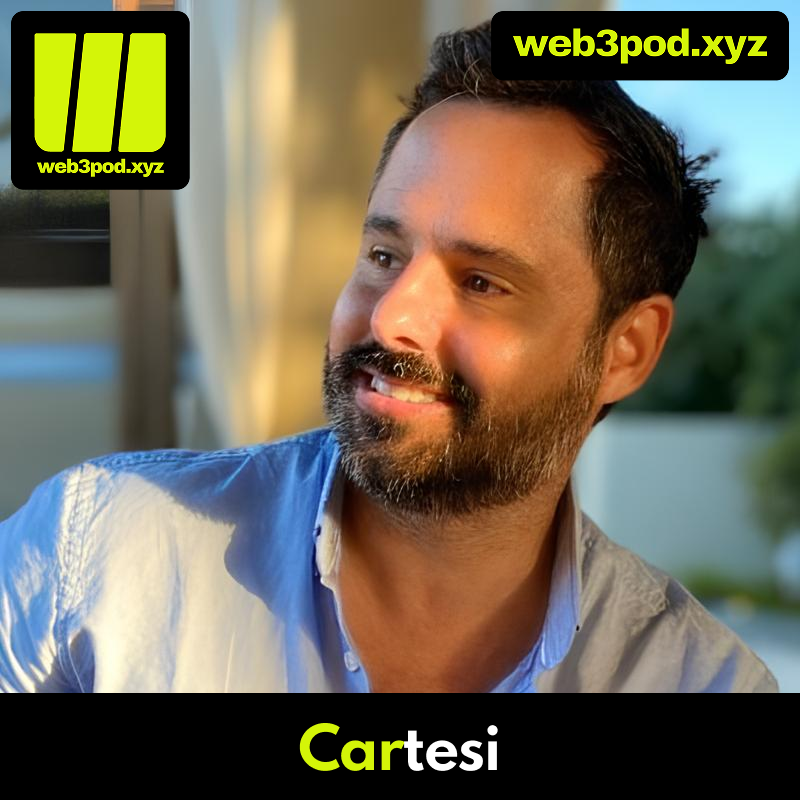The Future of Decentralized Communication with Ayush Ranjan from Huddle01

Introduction
Welcome to the 129th episode of the Web3 with Sam Kamani podcast. Today, I had the pleasure of interviewing Ayush Ranjan from Huddle01, a groundbreaking project in the decentralized physical infrastructure space. In this episode, we dive into the challenges and innovations of building a decentralized communication network that can outperform traditional services like Zoom and Discord.
The Journey to Blockchain
Ayush's journey into the blockchain space is an inspiring one. With a background in electrical engineering and experience in product and growth at startups like TaskBob and Zepho, Ayush realized the potential of blockchain to revolutionize digital advertising. This led him to discover Brave Browser, which rewards users for viewing ads while maintaining privacy. Fascinated by the concept, Ayush's first crypto token was BAT (Basic Attention Token), which opened the door to his deeper exploration of blockchain technology.
The Birth of Huddle01
In 2020, Ayush co-founded Huddle01 with Sushmit, a fellow university alumnus, during the ETHGlobal HackFS hackathon. The idea was to create a decentralized Zoom alternative that addressed privacy concerns and latency issues, especially for users in remote regions. Unlike traditional video conferencing tools that rely on centralized servers, Huddle01 aims to use local servers or even user devices to reduce latency and improve the overall experience.
Addressing the Latency Issue
One of the significant problems with platforms like Zoom and Discord is high latency, especially when users are spread across different regions. Ayush explains that in traditional setups, all data packets travel to a central server and then back to the users, causing delays. Huddle01 solves this by creating a cascading environment where local servers communicate with each other, significantly reducing latency to below 100 milliseconds.
Building a Decentralized Network
Huddle01 is not just an application; it’s a network. It allows users to host video calls on their devices, turning them into servers. This decentralized approach ensures better performance, cost efficiency, and enhanced privacy. Ayush emphasizes that Huddle01 is designed to be people-powered, making it a truly decentralized platform.
Challenges and Innovations
Building Huddle01 came with its challenges. The team had to master the complexities of WebRTC (Web Real-Time Communication) to create a scalable and low-latency network. They also faced the challenge of breaking user habits and convincing them to switch from established platforms like Zoom and Discord. Additionally, creating a seamless coordination among various stakeholders in the network was a complex task.
The Future of Communication
Looking ahead, Ayush envisions a future where communication moves beyond 2D screens to more immersive, holographic interactions. He believes that as internet speeds improve and decentralized networks become more robust, we will see a shift towards more engaging and collaborative communication methods.
Conclusion
Huddle01 is paving the way for a decentralized communication revolution. By addressing the core issues of latency, privacy, and scalability, Ayush and his team are creating a platform that is not only innovative but also essential for the future of digital communication. If you're interested in joining this journey, whether as a user, node operator, or part of the team, Huddle01 is looking for passionate individuals to help build the next generation of communication technology.
Connect with Us
You can connect with me, Sam Kamani, on social media or reach out directly. My DMs are open, and I’m always eager to engage with fellow innovators.
This episode covered the exciting development in the world of Web3. You can listen to it here .
Stay tuned for more episodes where we dive into the world of Web3. Thank you for your support and best of luck in building your startups and projects.




